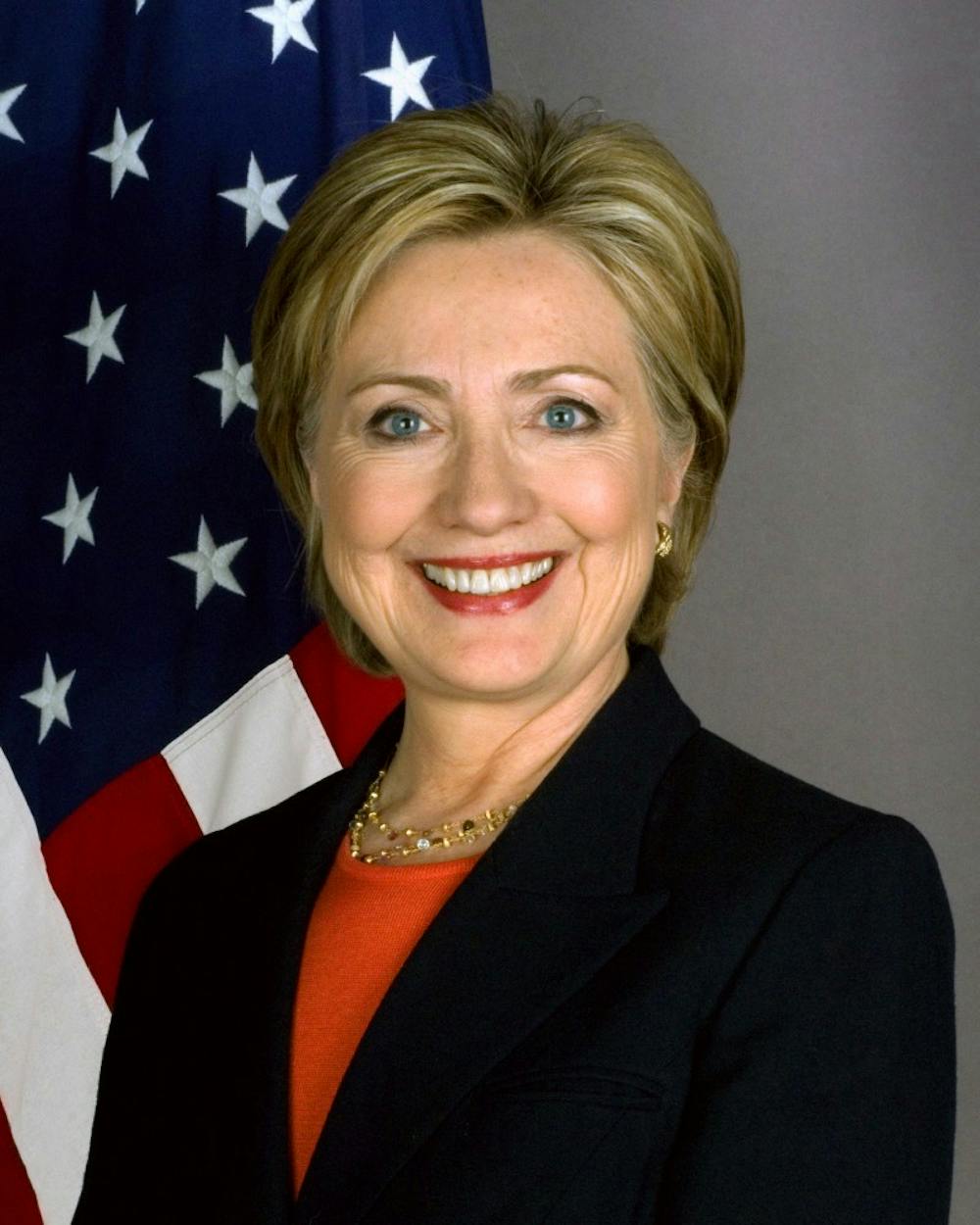There are less than two months until Election Day, and each candidate is fighting for support in an effort to win the highest office in the country.
Hillary Clinton, the democratic candidate, has faced criticism for sending emails on a private server and fought against claims that the Clinton Foundation is a “pay for play” system. However, she has gotten support from voters due to her experience being secretary of state in the Obama administration from 2009 to 2013.
The Daily News asked Ball State democrats what they thought about Clinton, Bernie Sanders and the direction they think the Democratic Party is heading toward.
Kayla Stinson, a junior physics major who is a member of the Ball State Democrats, supported Bernie Sanders in the primaries and believes he helped shift Clinton’s platform further left.
“By endorsing [Clinton], Bernie was able to implement some of his ideas into the overall democratic platform," Stinson said.
At first, Stinson was not thrilled about Clinton winning the primary election. It took her a while to support Clinton because she was huge fan of Sanders.
“I understand that she is qualified, has experience and connections, and that I do agree with many of her ideas,” she said.
When it comes to Clinton’s email controversy, Stintson said she didn’t know what to think about it any more and that it was a huge mistake. She also thought it was unsurprising that no charges came from the FBI investigation.
Stinson’s message to Sanders supporters is to vote for Clinton because her stance on the issues is the closest to Sanders.
“If you are a Bernie-loving progressive and skip out on voting, vote third party or vote for Trump, you are directly contradicting the person you so deeply support,” Stinson said.
Morgan Aprill, a masters student in the TESOL/linguistics program and secretary of the Progressive Student Alliance, has felt disappointed by “empty promises” from the Democratic Party in the past and supported Sanders in the primaries.
Aprill believes Sanders' political revolution helped people realize the Democratic Party is “just another form of corruption and [people] are leaving en masse.”
Aprill is not happy with Clinton as the democratic nominee for president because she thinks Clinton “represents the elite oligarchy that is in the hands of the banks and billionaires.”
For now, Aprill is looking into Jill Stein, the Green Partys candidate, but she is currently undecided. She also said many people in the Progressive Student Alliance are voting for Clinton to prevent Trump from winning the election.
“I believe the options this election are just another example of how the parties use fear tactics to keep people voting one or the other,” Aprill said. “Falling into line to vote for one candidate in fear of another has led us to most of what we have feared as a country anyway.”
John Rash, a sophomore social studies major and member of the Ball State Democrats, supported Sanders in primaries and plans to support Clinton in the general election.
“She wasn’t my first choice, but I am glad to see a woman run for office on the democratic ticket,” Rash said.
He also believes Clinton's email controversy “isn’t that important of an issue in the grand scheme of things”. He is not considering any third party candidates but said he will keep his options open for the candidate who aligns with his views.
Jessica Ratel-Khan, a public communication and political science major and member of the Ball State Democrats, supported Sanders in the primaries because many of her policy preferences are toward the left of the Democratic Party.
She believes Sanders made the Democratic Party more aware of the policy preferences of younger voters. Even though Sanders lost the primaries, she is happy to support Clinton.
“Secretary Clinton is extremely qualified as an activist, lawyer, First Lady, Senator and Secretary of State,” Ratel-Khan said.
On Clinton’s email controversy, Ratel-Khan believes there are legitimate concerns on the subject but the conversation surrounding it is misdirected.
“I think we can use the Clinton situation as an opportunity to change policy rather than scoring political points,” she said.
Ratel-Khan also had a word of advice for students during the last part of the election season.
“I understand that this presidential race is extremely polarizing to a lot of people,” Ratel-Khan said. “If you don’t want to vote for any presidential candidate, there are still state and local politicians running for office that have considerable impact on our lives.”





